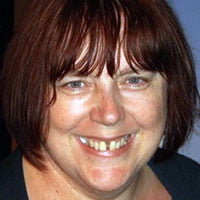UK writers’ guild blasts gender disparity
Only 14% of primetime scripted TV in the UK is written by women, helping to create a “self-sustaining loop” of inequality, according to a report published today.

Ellie Peers
The hard-hitting report, which was commissioned by the Writers’ Guild of Great Britain (WGGB), claims the number of female writers working on TV shows and movies has not improved in a decade.
Only 28% of all TV episodes were written by women, while just 14% of primetime drama was predominantly female written.
The research, funded by the Authors’ Licensing and Collecting Society, found there had been little improvement over the past 10 years.
Unconscious bias among commissioners was a key issue, the report found, while closed hiring processes, a lack of equality data and inadequate regulatory systems were also hampering progress.
The review, which explored the TV and movie industries between 2005 and 2016, polled 200 female writers about their experiences in the industry, with only 5% agreeing that “the way writers are hired, and scripts are commissioned, is fair and free from discrimination.”
The research also highlighted the difficulties women are facing when trying to move into certain genres. Only 11% of comedies were predominantly female-written, while the figure for light entertainment stood at just 9%.
Movies fared even worse, with just one in 10 films written by a woman. For movies with budgets over £10m (US$12m), the figure fell to one in 14.
Ellie Peers, the WGGB’s general secretary, said the research showed how “bias and systemic problems are creating what the authors describe as a ‘self-sustaining loop’ of inequality.”
“While the short-term nature of film productions is having its own impact on gender equality, in TV, conversely, the longevity and size of the centralised bodies involved allows negative practices to develop and become normalised over time.
“Gender inequality in film and TV is not limited solely to writers, and this report offers salutary findings here, too – key creative roles on film productions are held predominantly by men and this is influencing female representation on screen.
“We must ask ourselves what effect this is having on audiences and our culture and look to what it must tell us about other forms of inequality. If women writers are faring so badly in film and TV, surely the situation must be worse for BAME writers, or for writers with disabilities.
“The report rightly concludes that further concerted action is required to address this problem.”
The report said both the TV and movie industries should retain their focus on gender inequality to improve the situation, adding that better data collection should also be encouraged.
It added that female-written shows received a better critical response, with series such as the BBC’s Happy Valley, from Sally Wainwright and ITV’s Victoria, from Daisy Goodwin, enjoying particular acclaim.
In February, almost 80 female drama scribes signed an open letter protesting against gender disparity after ITV revealed only one of its nine dramas had a female lead writer.
BBC1’s head of drama Pies Wenger told BBC News that since taking up his role in 2016 women have “written more than 40% of the drama” he had commissioned.













.jpg)




























